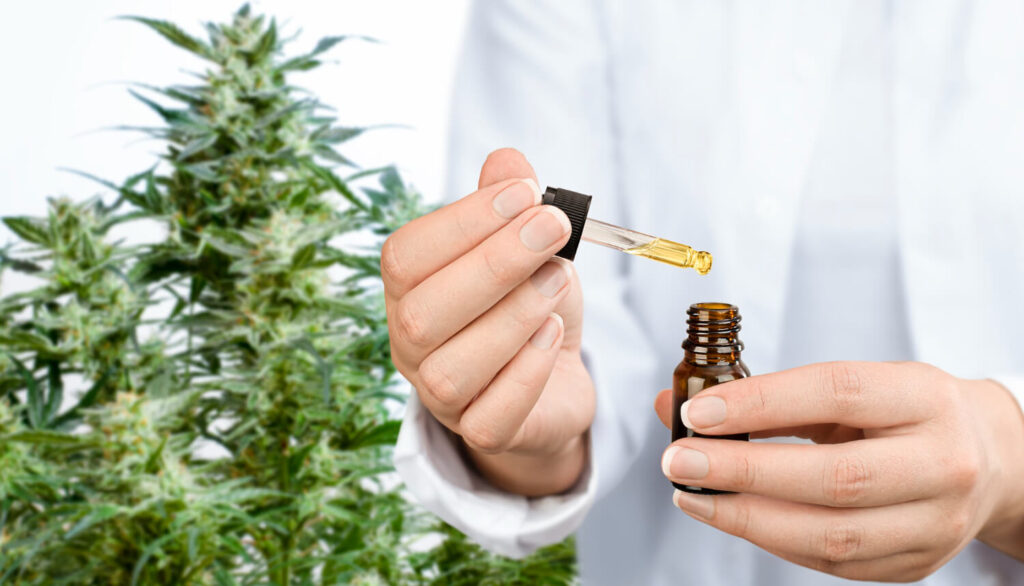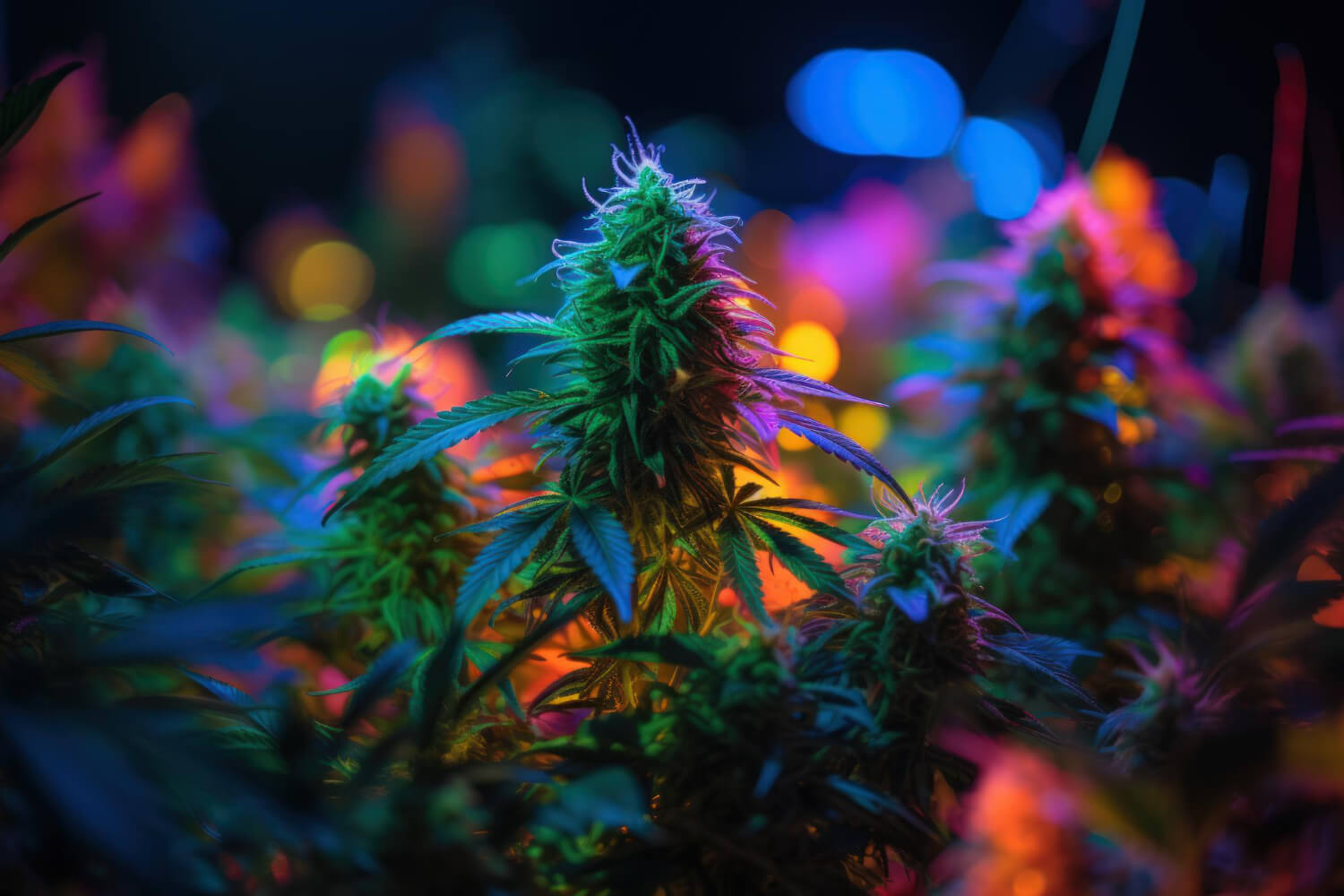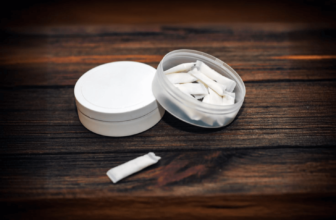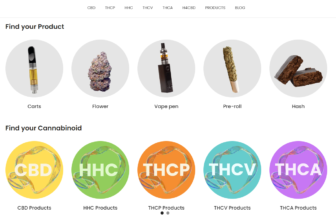Is THCV psychoactive? That’s the big question we will be exploring in our comprehensive guide on this lesser-known but potentially potent, THC analog. With the birth of various THC analogs, some with potencies that outclass the main cannabinoid behind marijuana’s high (delta-9 THC), understanding what THCV all does, can’t come soon enough.
The Psychoactive Nature of THCV
With 3 carbon atoms in its carbon double chain vs. delta-9’s 5 carbon atoms, THCV is given unique properties and effects. So to quickly answer the big question as to whether THCV can cause a high like delta-9, while research is limited, we know that while it can cause a high, it doesn’t always.
When you consume delta-9 THC, it triggers a high by activating CB1 receptors as it’s an agonist to these receptors that are found heavily concentrated in the brain and spinal cord. The degree it causes a high depends on the dose, but delta-9 is always an agonist to CB1 receptors. THCV may not be, however.
At lower doses, THCV is believed to act as an antagonist of CB1 receptors. This means it competes with and blocks the effects of other cannabinoids, such as delta-9 THC, on CB1 receptors. As a result, it may attenuate some of the psychoactive effects of THC.
At moderate to high dosages, THCV has been reported to behave as a partial agonist of CB1 receptors. This means that, in addition to blocking the effects of other cannabinoids, it can also activate CB1 receptors to some extent and cause a high. The effects of THCV at higher doses are not fully understood, and they may vary among individuals.
Comparing THCV with THC
While having a very similar molecular structure to delta-9 THC, THCV can have very different psychoactive effects.
Ability To Cause A High
It’s pretty safe to say that THCV will not cause you to feel as high as delta-9 will, especially, if you’re taking small doses that can block delta-9 and other CB1 agonists’ ability to cause a high.
Appetite Suppression
Unlike delta-9, which most often stimulates appetite, THCV can suppress appetite when taken in lower dosages that promote it to be an antagonist of CB1 receptors. However, if taken in larger dosages, biphasic effects are seen and it may stimulate appetite.
Glycemic Control
A 2016 study found that THCV was similar to CBD in its ability to decrease blood glucose levels and increase insulin production in people with type 2 diabetes. While there is some research that delta-9 may improve glucose control, its ability to simulate appetite can negatively affect blood sugar levels.
Overall, when kept to lower dosages, the psychoactive differences between THCV and delta-9 are going to be much more stark due to their influence on CB1 receptors. THCV in higher dosages is going to eliminate many of their differences, however. A high dose of THCV may feel nearly identical to a low dose of delta-9 THC. Funny enough, despite their close structures, THCV does not start its existence off as cannabigerolic acid (CBGA) like delta-9 does.

The Impact of Dosage on THCV’s Psychoactivity
Unlike the two most well-known cannabinoids: delta-9 THC and CBD, the impact of dosage on THCV’s psychoactivity is huge. No matter how much CBD you take, it’s incredibly unlikely it goes from being an antagonist at CB1 receptors to being an agonist that activates them. The reverse is true for delta-9 THC. That cannot be said for THCV, with research demonstrating its ability to go from being an antagonist at CB1 receptors to a partial agonist.
The exact threshold at which THCV transitions from being an antagonist to an agonist of CB1 receptors is not well-established and may vary among individuals. Some may feel the effects transition quickly when raising the dosage, while others may feel a more gradual progression. THCV taken in conjunction with other cannabinoids will influence THCV’s psychoactivity as well.
Legal and Safety Considerations
Thanks in part to cannabinoids like CBD that can’t cause a high but can have a wealth of therapeutic benefits, laws regarding the possession, use, and distribution of cannabis items are turning their focus to delta-9 THC.
While there are a few other cannabinoids that can cause a high, such as THCP, cannabis produces these cannabinoids in just traces — so little, that it’s unlikely they have much effect on the high felt when consuming marijuana flower. However, lawmakers are becoming aware that these minor cannabinoids can be turned into extracts that can cause a high, so please keep up to date on the legal status of cannabis and its derivatives in your region.
As with any cannabinoid-based cannabis items, please make sure you are only buying these items from reputable companies that provide COAs and other transparencies, such as info on the manufacturing process.
Conclusion
Unlike delta-9 THC and CBD, whose effects on the body stay fairly consistent when increasing the dosage, with their effects just becoming more pronounced, the dosages you consume THCV in can completely change how it affects the body. At lower dosages, THCV is likely to feel closer to CBD with its ability to regulate appetite while providing a minor boost in energy. Taken in larger dosages, you may quickly find yourself experiencing a euphoric high that’s similar to delta-9 THC. Because the size of the dose influences THCV’s psychoactive effects, while experimenting with different dosages is fine, please stick to non-intoxicating dosages if you’re planning to drive or operate heavy machinery.





